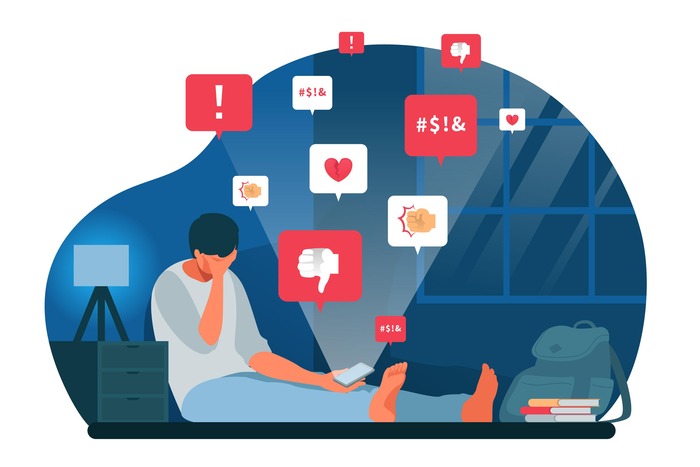Understanding the Impact of Social Media on Mental Health

Digital connectivity has changed our life by making us use social media networks every day, transforming the way we communicate with people, share information and see ourselves and others. Social media does not only provide a good opportunity to connect that was never before seen but also comes with complexities that may affect mental health in a big way. This blog seeks to explore the intricate relationship between social media and mental wellbeing, discussing both positive and negative aspects of this digital world. At Jagruti Rehabilitation Centre in Delhi, we recognize the importance of understanding how social media affects mental health, and our holistic approach to rehabilitation includes addressing these digital influences to support individuals on their journey to recovery.
The Positive Side: Connection and Support
Social media is a powerful instrument of connection where individuals can keep relationships on track with friends, relatives, or even their communities worldwide. It allows for sharing experiences among people, mutual assistance as well as virtual community building. During times of physical isolation, many individuals consider it vital because it offers them a sense of belongingness and emotional support.
In particular, those who are suffering from different psychological issues find solace in internet-based associations where they can share their feelings, get advice or be understood by their counterparts. Through its power to overstep national boundaries, social media brings together victims of various problems who otherwise would feel alone in their trials.
The Dark Side: Comparison and Negative Impact
Although it has its positive sides, social media’s effect on mental health is not without problems. These platforms have created a culture of constant comparison that can lead to feelings of worthlessness, low self-image, and even depression. On social media, carefully selected images and stories often set up unrealistic expectations thereby fostering continuous comparisons which may be harmful for one’s mental health.
Social media can amplify common stressors such as the pressure to conform to societal beauty standards, lifestyle expectations or FOMO (fear of missing out). The constant exposure to idealized versions of other people’s lives can create a skewed self-perception where individuals can feel like they’re always coming up short in their own accomplishments and experiences.
Cyberbullying and Online Harassment:
Sometimes, however, the anonymity offered by social media sites increases incidents of cyberbullying as well as online harassment. These negative occurrences have serious implications on mental health making people anxious, depressed or even leading them to self-harm or suicidal thoughts in extreme cases. Efforts at combating cyberbullying successfully must therefore be vigilant for digital space that tends to magnify these behaviours and keep them alive indefinitely.
Fear of Missing Out (FOMO) and Its Impact:
The constant stream of curated content on social media platforms can contribute to the phenomenon known as FOMO. The fear of missing out on social events, experiences, or opportunities depicted online can evoke feelings of loneliness, inadequacy, and anxiety. Recognizing and addressing these emotions is crucial for maintaining a healthy relationship with social media and preserving mental well-being.
Setting Boundaries and Practicing Digital Detox:
To mitigate the potential negative impact of social media on mental health, individuals can benefit from setting healthy boundaries and practicing digital detox. Establishing designated times for social media use, limiting exposure to triggering content, and taking breaks from digital platforms can help create a more balanced and mindful online experience.
Promoting Positive Engagement:
While acknowledging the challenges, it’s essential to recognize that social media can be a force for good. Encouraging positive engagement, such as sharing uplifting content, supporting mental health awareness campaigns, and fostering genuine connections, contributes to a healthier online environment. Social media platforms can amplify positive messages, connect individuals with valuable resources, and provide platforms for mental health advocacy.
Understanding the impact of social media on mental health requires a nuanced perspective that acknowledges both the positive and negative aspects of the digital landscape. Navigating the online world with mindfulness, setting boundaries, and promoting positive engagement can help individuals harness the benefits of social media while safeguarding their mental well-being. By fostering a culture of empathy, support, and responsible online behavior, Jagruti Rehab Centre in Delhi aims to contribute to a digital environment that enhances, rather than detracts from, our mental health and overall well-being.

